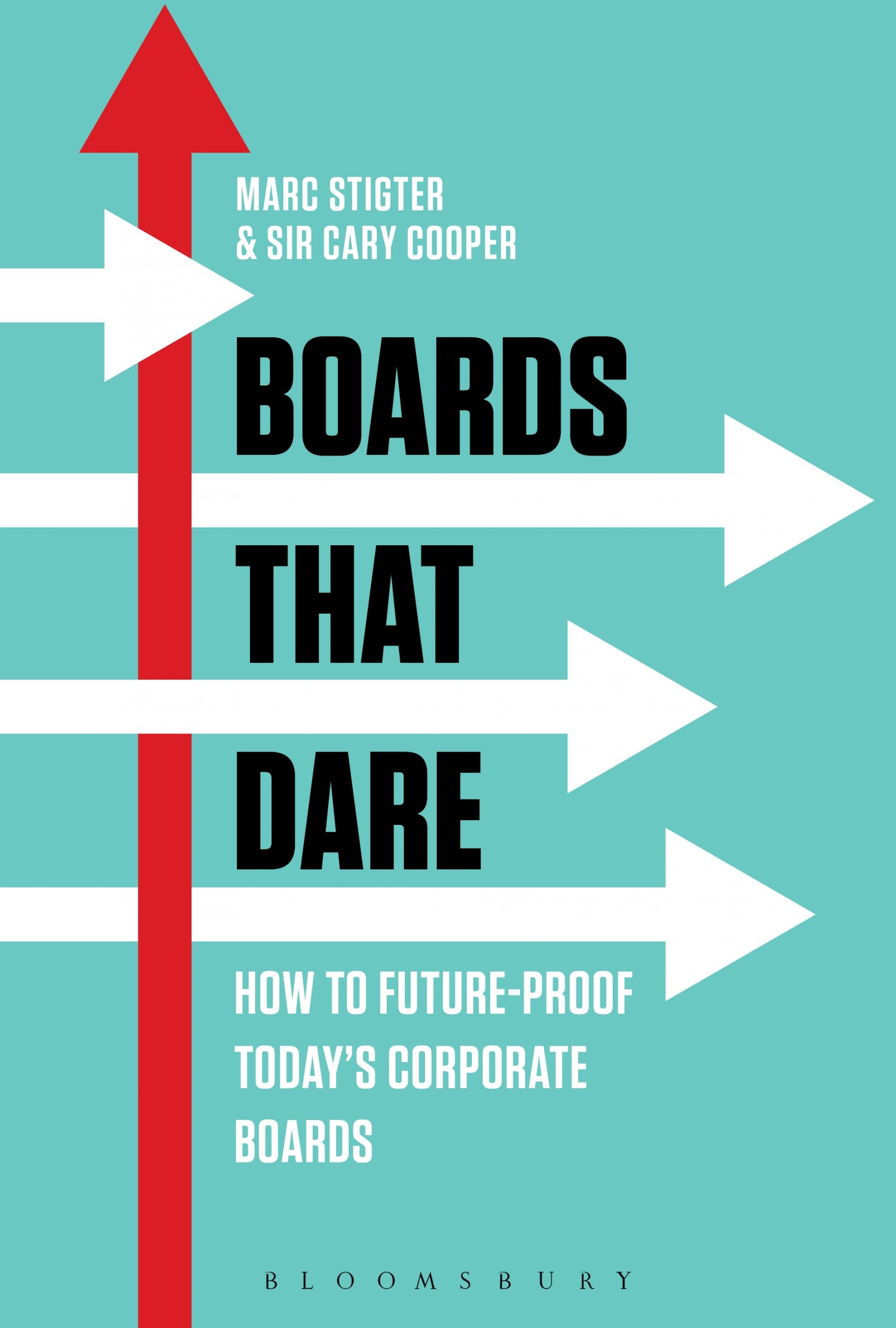I volunteered to review this book as I’m really interested in how Boards work; I sit on the Board of a charity, I’ve chaired a Board, and I regularly work with Boards as a facilitator and coach. And, in all honesty, I believe that most Boards aren’t where they need to be. And seeing Sir Cary Cooper as co-author gave me high hopes for this book.
One-sentence summary: Increasing strategic turbulence requires Boards to be highly effective; most aren’t, however they can become much more so if they focus on their ability, understanding, desire, being, and courage and focus on the value that they are there -as directors – to direct.
My take-aways from the book:
The case for future-proofing: Not only must Boards have a handle on current performance, they must future-proof but many Boards don’t because directors are hanging onto old practices/thinking, and are focused on minimising risk rather than seizing opportunities. The authors conclude that most Boards are not future proof, and many are dysfunctional. When big corporate scandals occur, it is legitimate to ask ‘Where was the Board?’. Boards play an enormous role in the organisation that has a wide-ranging impact on the organisation’s employees, stakeholders, and beyond. In a time of increasing transparency and activism, Boards need to raise their game. “The first step is for Boards to ensure they have the right attitudes and capabilities to position the company for the future. It all starts within.”
Boards that can (ability); Things are changing rapidly and Boards need to change rapidly but often don’t because “…directors often lack the courage to objectively evaluate their make-up and determine if they have the right skills and perspectives around the table”. Many Boards are focusing too much on “the rear view mirror” and not enough on the road ahead (something that I believe you can often spot by skim-reading the stack of Board papers). Directors should be concerned with… direction. It is not enough for Boards to be in ‘the powerless past’ or ‘the passive future’, rather they need to be ‘unleashing the future’. Boards need to shift their process, purpose, and focus and need to be much more involved in co-creating strategy and scrutinising implementation. And Boards need to me more diverse and, generally, younger.
Boards that know (understanding); Boards need to know what is going on in their organisation but often they don’t seem to know (or want to know), for example how could the board of VW not know what was going on? Also, Boards need to have strategic insight so they’re not surprised by changing market conditions (for example, surely the current wave of shock trading announcements could mostly have been foreseen some time ago and action taken accordingly if the Board had the courage to do so). There can be loads of reasons for Boards ‘not knowing’, including poor information flows to a Board that might be ‘too nice’ to have the conversations that need to had and ask the questions that need to be asked. The old excuse of time crops up far too frequently. Directors need to shift their focus to being more entrepreneurial, and increase their individual and collective intuition.
Boards that want (desire); Boards should be massively energised and engaged in what they are there to do but can often end up weighed down and dispirited. It isn’t enough to have ability and understanding, it must be accompanied (and driven) by desire and willingness. There can be many things that hold a Board back, including a reluctance to ‘rock the boat’. Boards can be burdened by ‘insight inertia’ or ‘action inertia’ and we can mistakenly assume that all directors are engaged (because they certainly ought to be).
Boards that are (being); have a huge opportunity to display integrity and be driven by a deep-seated moral compass. However, many Boards are simply getting away with whatever they can get away with. Boards must clamp down on immoral practices; they should know what is going on in their organisation and they must ensure that unethical practices are not tolerated. There are a number of reasons why directors can get involved in unethical activities (the book lists 12 drivers) such as ‘obeying authority’ and we should learn to spot these and challenge them. Boards should be encouraged to ask stupid questions (because there is s usually no such thing) and they should be truly diverse and inclusive.
Boards that dare (courage); Courage is an essential underpinning component that manifests itself in so many ways whether it be the courage to call out bad behaviour or unethical practices, the courage to be disruptive, or the courage to take bold risks, or ask so-called stupid questions. Cowardice comes at a cost, and courage should be encouraged as a habit with the Chair setting the tone for this. “It is only when Boards collectively Are, Can, Know, Want, and Dare that they are ready for future-proofing by expanding beyond shareholder-valued goals in pursuit of deeper stakeholder-valued goals.”
Reframing value and care (so many nuggets about stepping through a focus on):
- employees
- consumers and other stakeholders
- society and the environment
In order to deliver an output of sustainable shareholder value .
Would I recommend this book? This is the best book I have read for a long time and if I could, I would nominate it for ‘business book of the year’ already! It strikes a brilliant balance of being well-structured without feeling rigid, being evidence-based without being dogmatic, and it is well-referenced (although I’d personally rather see these as footnotes referenced in the text rather than endnotes). If you are part (or chair) of a Board, work with your Board, or do any facilitation/coaching with Boards then please buy, read, reflect on, and apply the learning from this book. It is that good. Taken seriously, it will make a positive, sustainable impact in making Boards better.
Ian Pettigrew, Kingfisher Coaching – www.kingfishercoaching.com







